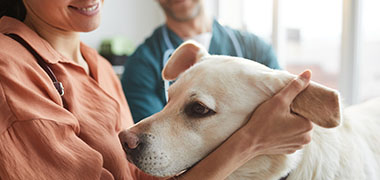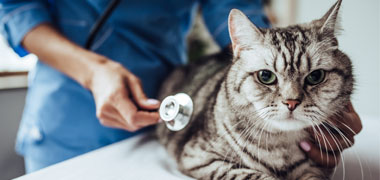
This role has a moderate level of AI exposure. AI can enhance efficiency for some tasks, but this job still relies on human skills and decision-making.
Explore all careersA Veterinary Nurse assists veterinarians in treating animals, monitors their care, performs tests, administers medications, and communicates with pet owners.
Get qualified to work as a Veterinary Nurse with a course recognised across Australia. Speak to a training provider to learn more.






In Australia, a full time Veterinary Nurse generally earns $1,250 per week ($65,000 annual salary) before tax. This is a median figure for full-time employees and should be considered a guide only. As you gain more experience you can expect a potentially higher salary than people who are new to the industry.
 Courses.com.au Team
Courses.com.au Team
There are currently 12,100 Veterinary Nurses working in Australia. This number has increased from only 7,900 five years ago. Veterinary Nurses can find work in all regions of Australia.
Source: Australian Government Labour Market Insights
 Courses.com.au Team
Courses.com.au Team
If you’re planning to become a Veterinary Nurse you could enrol in a Certificate IV in Veterinary Nursing. This 12 month course includes a work placement so you’ll get real world experience. The course covers various aspects of veterinary nursing from helping a vet during a surgical procedure to assisting animals to recover from injury.
 Courses.com.au Team
Courses.com.au Team
Browse occupations related to Veterinary Nurse



In Warrnambool, aspiring students can take advantage of comprehensive Veterinary Nurse courses designed to equip them with the essential skills and knowledge required to thrive in the veterinary field. Engaging with these specialised training programs not only prepares individuals for a rewarding career as a Veterinary Nurse but also opens doors to various related job roles, including Equine Veterinary Nurse and Veterinary Emergency Nurse. The rich environment of Warrnambool, known for its beautiful coastline and vibrant pet-loving community, presents a unique backdrop for such career-focused education.
The Veterinary Nurse courses in Warrnambool are delivered by accredited Registered Training Organisations (RTOs), ensuring that all education meets industry standards and regulatory requirements. Students can expect to learn a variety of practical and theoretical aspects integral to animal care, from understanding veterinary practices to developing effective communication skills with pet owners. For those who wish to extend their career further, there are numerous related fields of study available, such as Animal Health Officer and Veterinary Technician, which can be explored to enhance professional development.